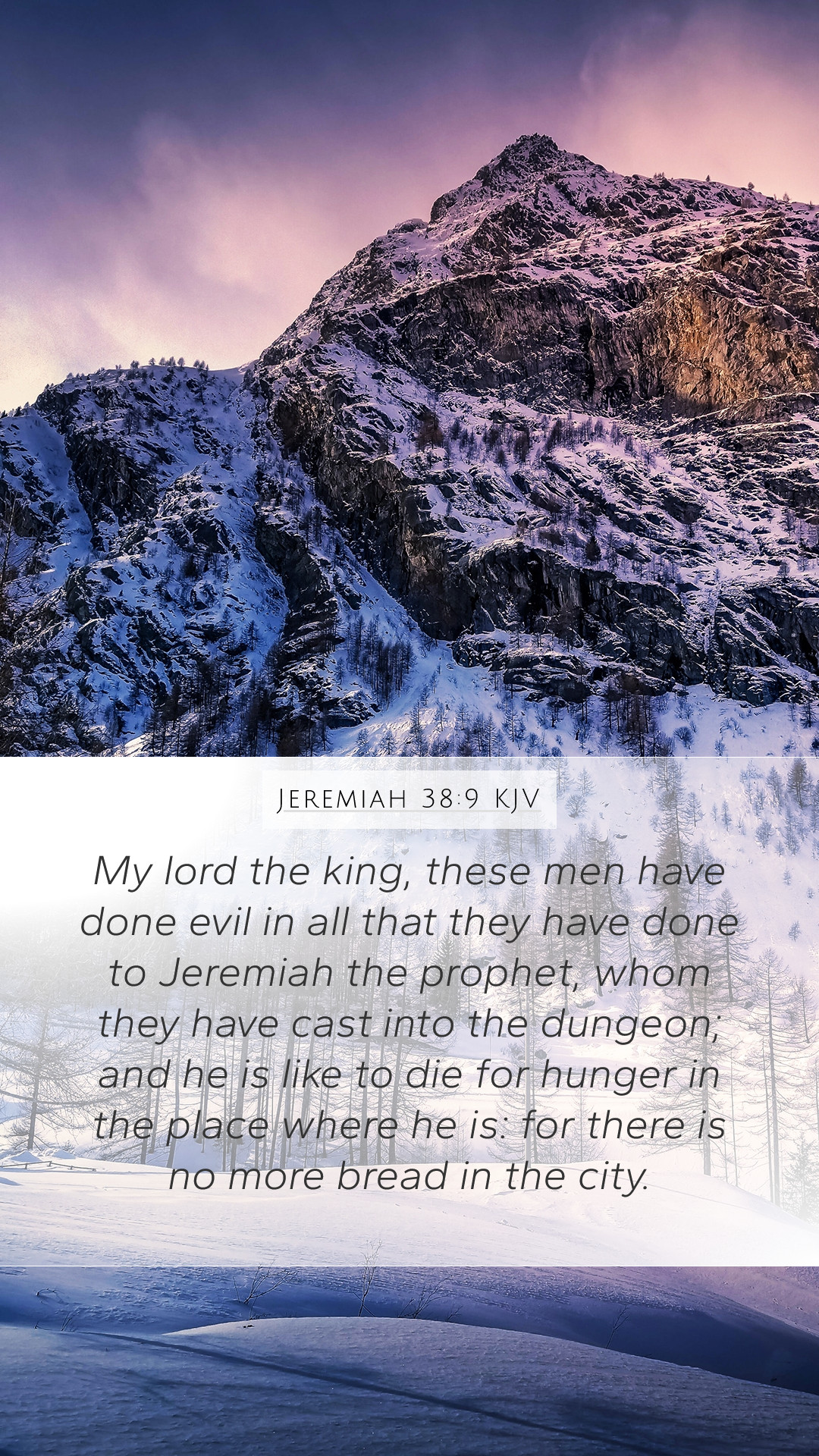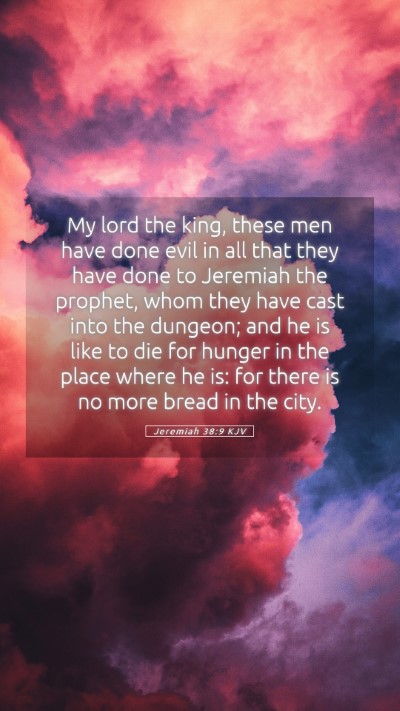Understanding Jeremiah 38:9
In Jeremiah 38:9, we encounter a profound moment in the life of the prophet Jeremiah, highlighting themes of prophetic truth, social injustice, and the dire circumstances of Jerusalem during the siege by Babylon. This verse can be better understood by delving into various biblical commentaries that analyze its context and implications.
Bible Verse Overview
“My lord the king, these men have done evil in all that they have done to Jeremiah the prophet, whom they have cast into the dungeon; and he is like to die for hunger in the place where he is.”
Key Themes
- The Fate of Jeremiah: Jeremiah is imprisoned in a dungeon, suffering from neglect and starvation, representing the broader message of persecution faced by prophets.
- Prophetic Integrity: This situation underscores the dangers of adhering to God’s message in a corrupt society.
- Social Justice: The actions of King Zedekiah and his officials show the cruel realities of power dynamics and justice.
Commentary Insights
The verse has been interpreted across various public domain commentaries, shedding light on its multiple dimensions:
Matthew Henry's Commentary
Matthew Henry emphasizes the injustice faced by Jeremiah as a representative of the truth. He draws attention to how the prophet's suffering reflects the larger theme of the world's response to divine truth. Jeremiah's imprisonment is seen as a result of the people's refusal to heed God's warnings. Henry asserts that those who oppose God's word will ultimately face consequences, showcasing the protection God provides to His faithful servants.
Albert Barnes' Commentary
Albert Barnes focuses on the role of the king's advisors and their influence over Zedekiah. He conveys that the officials' actions towards Jeremiah highlight their disregard for God’s appointed prophet. Barnes suggests that this neglect flags a more extensive moral decay within the leadership of Jerusalem, leading to dire consequences for the city itself. He also reflects on the physical and emotional despair faced by Jeremiah, food insecurity symbolizing spiritual starvation among the Israelites for God's word.
Adam Clarke's Commentary
Adam Clarke provides a detailed historical context of this imprisonment, linking it to the prevailing socio-political conditions of Israel. He explains that Jeremiah's message was counter to the hopes and beliefs of the ruling class, making him a target for their ire. Clarke emphasizes the irony of the leaders' power in creating despair, as they should represent justice and righteousness. He also speaks on the role of the people, who were to share in the burden of Jeremiah’s fate and how this has implications for community responsibility.
Applications and Interpretations
When studying Jeremiah 38:9, there are several important lessons and applications to consider:
- Embracing Truth in Adversity: Like Jeremiah, individuals are called to stand firm in their beliefs, even when faced with societal pressure and persecution.
- The Call for Justice: This verse compels believers to examine their response to injustice and dictate their actions toward supporting those speaking God’s truth.
- Intercession and Advocacy: The actions of the officials urge the faithful to advocate for those wrongfully imprisoned or marginalized, reflecting God’s compassion.
Cross References
For deeper understanding, consider these related scripture references:
- Jeremiah 37:15-16: Details Jeremiah's earlier encounters with the officials and the suffering he faced.
- Matthew 5:10-12: Jesus speaks about the blessedness of those persecuted for righteousness' sake.
- Hebrews 11:36-38: This section recounts various prophets and faithful people who suffered for their commitment to God.
Final Thoughts
The study of Jeremiah 38:9 is rich with meaning and context, reflecting the complexities faced by a prophet in a time of national crisis. From this passage, readers can gain insights into the nature of prophetic ministry, the responsibilities of the community, and the eternal principles of standing firm in faith amidst opposition. Whether used in Bible study groups, online Bible study, or personal devotion, the lessons derived from this scripture can guide and inspire believers towards a deeper understanding of Scripture.


